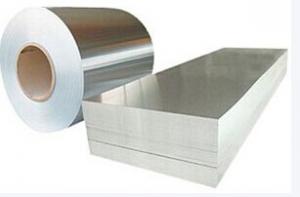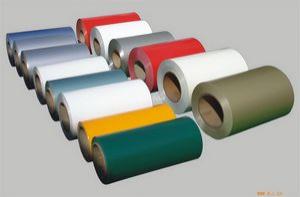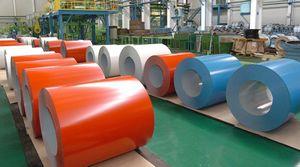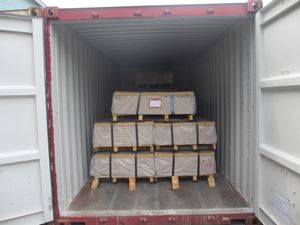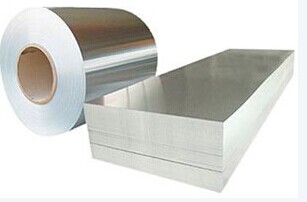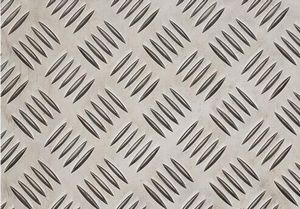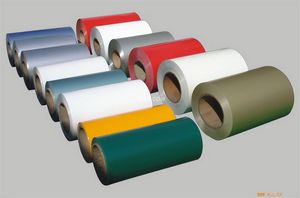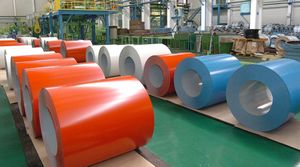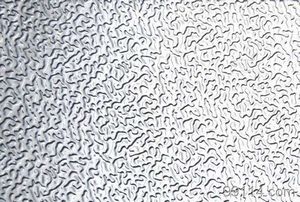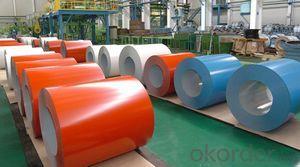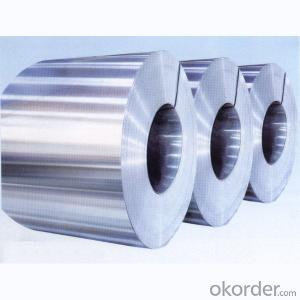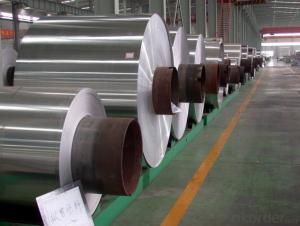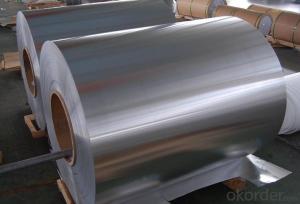AA 2020 6061 Aluminum Coils for Sale
- Loading Port:
- China Main Port
- Payment Terms:
- TT OR LC
- Min Order Qty:
- -
- Supply Capability:
- -
OKorder Service Pledge
Quality Product, Order Online Tracking, Timely Delivery
OKorder Financial Service
Credit Rating, Credit Services, Credit Purchasing
You Might Also Like
supply Mill-finished / coated aluminum plate/sheet/ coil:
Alloy: AA1050,1060,1100,1200,2024,3003,3304,3005,3015,5052,5086,5754,5083,6061,7050,7475,8011, etc
Temper: O, H14/16/18/22/24/32/ H112/H321/T6,T851,T7451,T7351, etc
Thickness: 0.02mm—20mm
Width: 100mm—2000mm (Can be slitted)
Notice: PE coating / PVDF coating / Embossment can be done if required.
Alloy: AA1050,1060,1100,1200,2024,3003,3304,3005,3015,5052,5086,5754,5083,6061,7050,7475,8011, etc
Temper: O, H14/16/18/22/24/32/ H112/H321/T6,T851,T7451,T7351, etc
Thickness: 0.02mm—20mm
Width: 100mm—2000mm (Can be slitted)
Notice: PE coating / PVDF coating / Embossment can be done if required.
- Q: Are parakeets allergic to aluminum because I wanted to use a metal pie pan for a bird bath.
- ask a nice bird vet
- Q: Why are the aluminum coils sticky after annealing?
- There is oil or the annealing time is too long!
- Q: Is it possible to recycle old aluminum coils as scrap metal?
- <p>Yes, old aluminum coils can be used as a source of scrap metal for recycling. Aluminum is a highly recyclable material, and recycling it helps conserve resources and energy. Old aluminum coils can be melted down and repurposed into new aluminum products. It's important to ensure that the coils are clean and free of contaminants before recycling to maintain the quality of the recycled aluminum. Always check with local recycling centers or scrapyards for specific guidelines on recycling aluminum coils.</p>
- Q: What are the different coil edge profiles available for aluminum coils?
- Aluminum coils come with a variety of coil edge profiles. Some commonly used profiles are: 1. Slit edge: This is the most basic type, where the coil is simply slit to the desired width. The edges of the coil are usually sharp and may have burrs or roughness. 2. Deburred edge: In this profile, the sharp or rough edges of the coil are removed through deburring. Deburring enhances safety and prevents damage to downstream equipment during processing. 3. Rounded edge: This profile involves rounding the edges of the coil through rolling or machining. Rounded edges are often preferred in applications that prioritize safety or involve frequent handling of the coil. 4. Beveled edge: Beveled edge profiles are created by cutting or grinding the edges of the coil at an angle. This profile is commonly used when two coils need to be joined together, as the beveled edges enable a smoother and more secure connection. 5. Custom edge profiles: Depending on the specific requirements of the application, custom edge profiles can be developed. These profiles are tailored to meet the unique needs of the customer and may involve a combination of different edge treatments. It's important to consider the intended application, processing requirements, and desired aesthetic appearance when choosing a coil edge profile. Manufacturers and suppliers of aluminum coils typically offer a range of edge profiles to accommodate different customer needs.
- Q: How do aluminum coils compare to other types of metal coils?
- When comparing aluminum coils to other types of metal coils, there are both advantages and disadvantages. Firstly, aluminum coils are lightweight, making them easier to handle and transport than metals like copper or steel. This lightweight characteristic also contributes to their cost-effectiveness in terms of shipping and installation. Moreover, aluminum coils are highly resistant to corrosion, making them suitable for use in humid or corrosive environments, such as outdoor air conditioning systems or refrigeration units. Additionally, aluminum coils have excellent thermal conductivity, allowing for efficient heat transfer. This makes them highly efficient in applications like HVAC systems or automotive radiators. However, there are also drawbacks to using aluminum coils. Compared to copper coils, aluminum coils have lower electrical conductivity, which can lead to higher energy consumption and reduced efficiency in certain applications. Additionally, aluminum is a softer metal than copper or steel, making aluminum coils more susceptible to damage or bending. To summarize, aluminum coils offer advantages such as lightweight, corrosion resistance, and thermal conductivity. However, they may have lower electrical conductivity and be more prone to damage compared to other types of metal coils. Ultimately, the choice between aluminum coils and other types of metal coils depends on the specific requirements of the application.
- Q: How many companies have used aluminum coil?
- Too many. All the companies who make the aluminum products you have seen in daily life have used it. So it is hard to explain.
- Q: Can aluminum coils be formed into different shapes?
- Aluminum coils possess the capability to assume diverse configurations. Such metal, known for its high malleability, exhibits an ability to undergo bending, shaping, and forming without fracturing. This particular attribute deems it an optimal material for myriad applications necessitating flexibility and adaptability. Aluminum coils, employing a myriad of techniques like bending, rolling, stamping, extrusion, or even specialized machinery like a coil forming machine, can be fashioned into an array of shapes. These shapes encompass sheets, plates, tubes, wires, or intricate three-dimensional structures. The capacity to mold aluminum coils into assorted forms renders it an exceptional choice for sectors such as construction, automotive, aerospace, and manufacturing, where customized parts and components are frequently required.
- Q: What are the common maintenance practices for aluminum coils?
- Some common maintenance practices for aluminum coils include regular cleaning to remove dirt and debris, checking for any signs of corrosion or damage, ensuring proper airflow and ventilation around the coils, and regular inspections to identify and address any potential issues. Additionally, it is important to follow manufacturer guidelines and recommendations for maintenance and to schedule professional servicing when necessary.
- Q: What is the maximum operating temperature for aluminum coils?
- The maximum operating temperature for aluminum coils typically ranges from 200 to 250 degrees Celsius.
- Q: Which would you guys recommend to a 13 year-old? I used a wooden bat at my last game, and I got a double to the left field wall, I don't think i've done that good with an aluminum bat all year. Should I continue using the wooden one? What do you guys think?
- aluminum because i mlb they use wooden bats so they dont hit as far if they had aluminum bats they would hit homeruns alot. aluminum is better but the mlb players have to use wooden
Send your message to us
AA 2020 6061 Aluminum Coils for Sale
- Loading Port:
- China Main Port
- Payment Terms:
- TT OR LC
- Min Order Qty:
- -
- Supply Capability:
- -
OKorder Service Pledge
Quality Product, Order Online Tracking, Timely Delivery
OKorder Financial Service
Credit Rating, Credit Services, Credit Purchasing
Similar products
Hot products
Hot Searches
Related keywords

